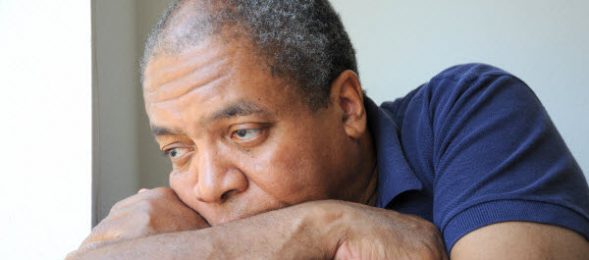We recently lost one of the most-loved actors and comedians, Robin Williams. The news confirmed that he died of asphyxiation (via suicide) due to severe depression. Many were surprised that the man who made so many laugh for about 40 years was dying inside. I’ve learned over the years that many who make others laugh are hurting inside.
As I thought about Robin’s illness, here are a few facts I would like to share about depression:
“Depression is a psychological disorder defined by persistent feelings of sadness, emptiness, and hopelessness. At current estimates, approximately one in five people will have an episode of depression in their lifetime; however, this varies by gender with a ratio of one in four women and one in eight men… Depression is a whole-body illness that adversely affects both the body and mind of sufferers, including their thought patterns, eating, sleeping, and social interactions. Symptoms include persistent sadness and crying; rumination; feelings of hopelessness and worthlessness; loss of interest in pleasurable activities, including sex; irritability, pessimism, and self-criticism; difficulty concentrating, remembering and making decisions; insomnia or hypersomnia (oversleeping); excessive eating with weight gain or restricted eating with weight loss; withdrawal from social life, including school, work, and leisure activities; persistent aches and pains that are not responsive to treatment; fatigue, loss of energy and motivation; and thoughts of suicide and possible suicide attempts” (Bueskens, P., 2011).
According to F. M. Baker, depression is usually caused by chemical imbalances in the brain. Those suffering from depression may hesitate to seek treatment because of the stigma attached to having the disease, not enough awareness or access to treatment, treatment costs, lack of transportation and childcare and not able to take time off from work. This shows how information sharing and greater availability of mental healthcare is vital in strengthening (and healing) especially our lower-income communities.
Because of how depression affects our society overall, I thought it would be good for us to take a look at how it affects the Black Community specifically. Mental illness, including depression, is taboo in the Black Community. Many would suggest that depression is due to lack of prayer or worship to God, and the urgency to treat it isn’t as high as when someone is diagnosed with cancer or diabetes. Many times mentally ill blacks are stereotyped, ignored or teased instead of treated and helped.
Here are some interesting points I found on how African Americans respond while depressed. There are three different ways that African Americans show symptoms of depression:
1. The stoic believer. This individual is typically of great religious faith and may not report feeling sad, blue, down, hopeless or helpless, but with clinical evaluations they may be diagnosed with depression. Some are also managing other illnesses or chronic situations such as poverty or caring for another loved one.
2. The angry, ‘evil’ one with a personality change. This individual may have had a change in personality after a major life change, like the death of a loved one or divorce. Their angry response to life may be an outward sign of major depression.
3. The John Henry doer. This is “the African American patient [who] continues to challenge himself or herself by taking on additional tasks because the patient “can get it done … and get it done right!”” (Baker, F.M., 2001)
Because African Americans display symptoms of depression differently than many of the other races, medical professionals must become aware of these differences to properly diagnose their patients.
My challenge is for us to take an honest inventory of ourselves and our loved ones to see if the possibility of depression exists. If it does, let’s take the necessary steps in getting diagnosis and treatment so that the quality of life can be improved.
The Battle Over Depression: Black Men and the Wives That Love Them
BMWK family, what other thoughts do you want to share about depression? Do you think that there is anything we can do to help the under-served receive needed mental healthcare benefits?
References:
Baker, F. M. (2001). Diagnosing depression in african americans. Community Mental Health Journal, 37(1), 31-8. Retrieved from https://search.proquest.com/docview/228297679?accountid=458
Bueskens, P. (2011). Depression. In M. Stange, C. Oyster, & J. Sloan (Eds.), Encyclopedia of women in today’s world. (1st ed., pp. 381-386). Thousand Oaks, CA: SAGE Publications, Inc. doi: https://dx.doi.org.ezproxy.apollolibrary.com/10.4135/9781412995962.n205
